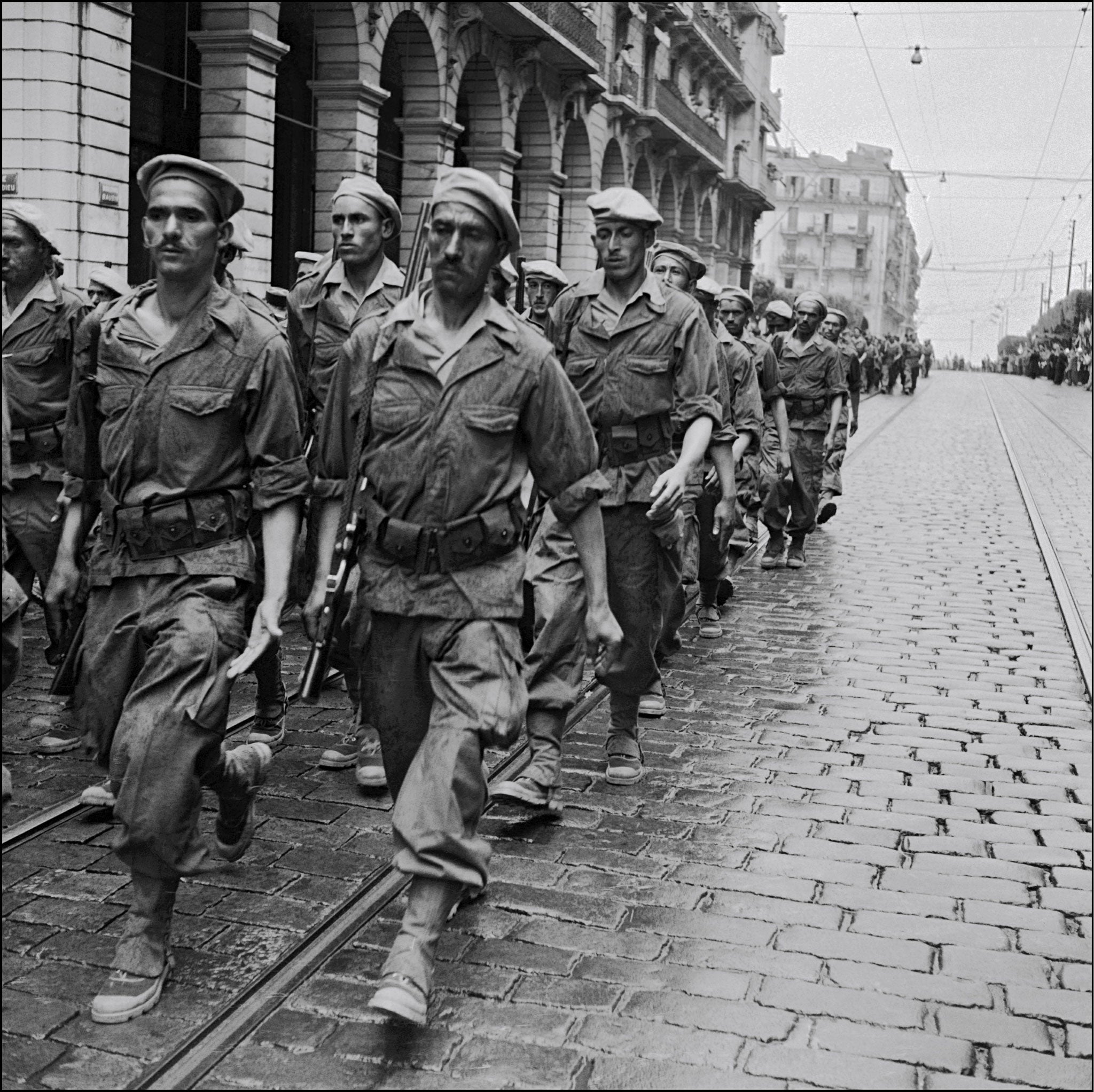On Leave by Daniel Anselme; trans. David Bellos, book review

Three soldiers come home for a ten-day leave from a savage and stupid overseas war that has robbed them of “the best years of their lives”. Far from welcoming them as heroes, or even trying to understand their pain, the oblivious citizenry indulges in “crude nationalist bluster” that sidesteps both the horror of the struggle and the anguish of those who fight and suffer it.
In fiction, we usually have to wait until long after the guns fall silent to hear such stories. Yet this precious act of literary reclamation on the part of Penguin Classics reveals a novel with a solar-plexus punch that was written from the dark heart of conflict. In late 1956, the Battle of Algiers had begun in earnest. The anti-colonial guerrillas of the FLN waged an indiscriminate war against the torture-happy French high command and the half-million conscripts who did their brutal bidding.
Early in 1957, a maverick author and former Resistance fighter called Daniel Rabinovitch (Anselme had been his undercover name) wrote this compact tale of a trio of army buddies. The three – an intellectual sergeant from Arras, a corporal from a Communist family in the suburban “red belt”, and a wide-boy trooper with street-smart survival skills – return to Paris to unwind over Christmas and New Year.
Beyond a few offhand phrases, we hear almost nothing about the atrocities the soldiers have experienced. We see symptoms, not causes, as the traces of trauma erupt in cafes, bars, hotels and apartments, from the neon-lit bohemian Left Bank to the “Little USSR” of neat housing estates along the Seine. Yet Algeria poisons every encounter and darkens every dialogue.
Sergeant Lachaume, Corporal Valette and Private Lasteyrie, each “messed up in every way”, flounder through a hostile city. Paris makes each scarred and scorned combatant feel like “a temporary visitor from far away”. Anselme had no reason to know Kipling’s “Tommy”, but his novel bitterly endorses that poem’s sentiments: “For it’s Tommy this, an’ Tommy that, an’ ‘Chuck ’im out, the brute!’/ But it’s ‘Saviour of ’is country’ when the guns begin to shoot”.
Translated by David Bellos with an urgent, slangy swagger, On Leave keeps its touch light. An edgy comedy of dislocation and embarrassment drives scene after scene. Lachaume’s wife walks out on him and he ends up propping up early-hours bars in St Germain, his sole companion a droll German misfit called Lena. When Valette invites his sergeant home for New Year lunch with his family of stalwart Communists, their sheer incomprehension hurts far more than the ignorant claptrap of the gung-ho chauvinists.
This broken feast ratchets up its mood of raw-nerved tragi-comedy almost in Mike Leigh vein. Throughout the holiday from – but still in – hell, talk stumbles, bodies freeze and laughter dies on lips. Repeatedly, we sense that “the ghost of war had entered the room”.
On Leave told its news from the frontline of the post-combat mind too early. Hardly anyone took much notice on its publication in mid-1957. By that year’s end, the electrodes and blowtorches of General Massu and his torture squads had “won” the Battle of Algiers. Meanwhile, FLN terror bombs continued to tear civilians, Arab and French, to pieces. Five more years of carnage would follow before France at last gave independence to Algeria.
Join our commenting forum
Join thought-provoking conversations, follow other Independent readers and see their replies
Comments
Bookmark popover
Removed from bookmarks